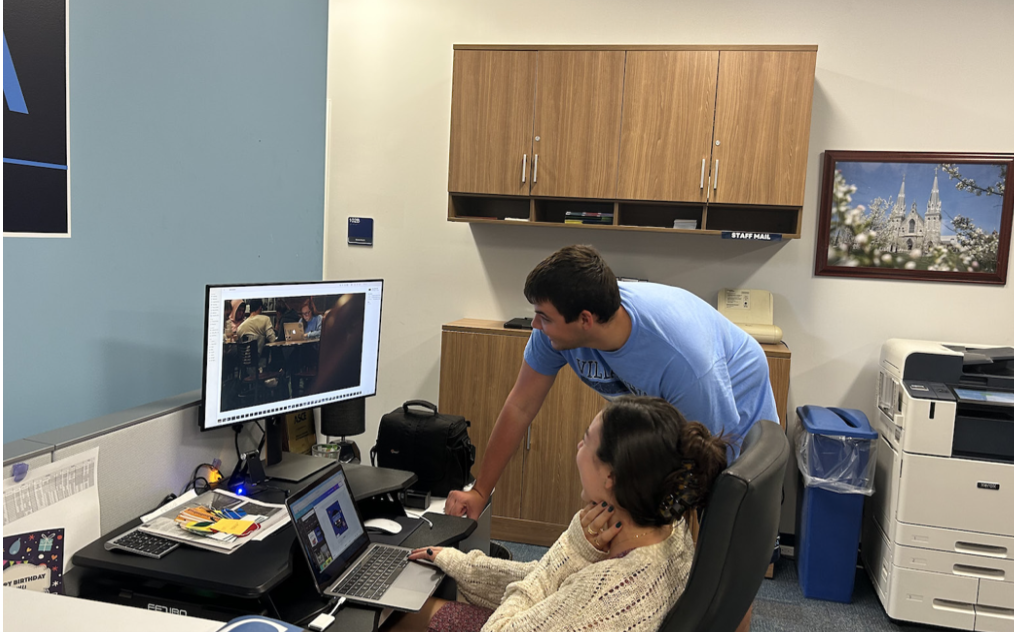Last year’s minimum wage increase was a win for all Villanova students who now earn an equitable wage for their work. In 2022, due to the push by the SGA, the University raised the standard minimum wage for all student employees from $7.25, in accordance with Pennsylvania state laws, to $10 an hour. But during this past summer, the student employee compensation system underwent additional changes.
While students were off enjoying their summer break in July, Villanova’s Human Resources Department announced an important update to the administration of student wages. According to the new system, entry-level jobs will be paid at $10 per hour. Intermediate level jobs, or those that require “relevant experience that can be applied to the position” and “skills for intermediate tasks,” as well as equipment and software use, will now be compensated at a rate of $11.25 per hour.
Students working in advanced level positions, who must have “significant experience” or “licenses, certifications, advanced coursework, laboratory practices, advanced software and/or equipment technical knowledge” to carry out responsibilities which are “generally complex in nature” will be earning $13 per hour. Student employees who are working as managers will be making $15 per hour. And, finally, undergraduate students working as research assistants, on fellowships or other special projects will also be paid $15 per hour.
The implementation of these wage standards for student employees ensures that students will be paid in a way that is proportionate to the level and amount of work that they are doing. With these standards and the minimum wage increase, any student who is working on campus will no longer be underpaid for the time and effort that they give.
The protection of fair wages for students is of critical importance because student employment is essential to the university experience. While many students work during the year to offset their living costs, a large portion of student employees also work to be able to have extra spending money for more personal or fun expenses.
“[I] treated [my] earnings like a budget for fun activities [while working as a VSB tutor and a Davis Research Associate at VSB],” former Villanova undergraduate student and current Villanova graduate student Natalie DiDomenico said.
DiDomencio “wanted to leave the semester with as much personal spending money” as she began it with, though this was often harder to accomplish. She was paid $10 an hour for both of these jobs, one of the highest pay rates on campus at the time, which is far less than she would be earning if she was currently working at either of these positions.
Senior Maggie Winston, an office assistant and dining hall cashier, also mentioned that she used her wages to “go out to eat once in a while” or to buy fun things like concert tickets. In an area as expensive as ours, extra spending money from these student employment jobs truly makes a difference in the quality of students’ everyday lives.
However, student employment isn’t just important for the students who work on campus, but also for the University as a whole. Student employees help Villanova operate smoothly in a wide range of different aspects. From pouring students’ drinks at Holy Grounds to assisting professors with their research to performing clerical duties in various department offices, student employees are essential to keeping the campus up and running. The new equitable wages for all student employees will encourage more students to work here rather than venturing off campus to find higher paying jobs elsewhere.
And it’s not just the money, as working at Villanova can be a valuable and rewarding experience for many. DiDomenico said that she began working at VSB because she wanted to “gain experience in the business school” and “make a bit of a difference in VSB.” Now that students have higher earning opportunities, more students won’t feel like they have to choose between making enough money and being able to take part in the opportunities here.
At its core, the standard set by the new student employment compensation system to ensure equitable pay for all is a win for both student employees, and the University as a whole.



